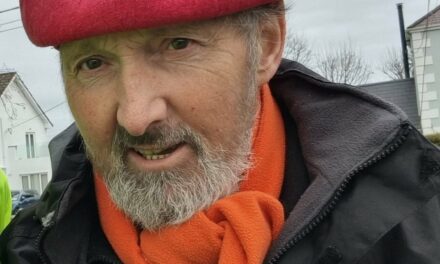At a South Dublin County Partnership open day, one speaker highlighted the impact local volunteers can have.
In February, South Dublin County Partnership (SDCP) held an open day in Fettercairn. Among the speakers was chairperson Marie Price-Bolger, who is also the chairperson of the Irish Local Development Network, the umbrella body for local development companies (LDCs).
Price-Bolger emphasised “the capacity within the not-for-profit sector to deliver programmes that government can’t, and to deliver them in an effective, efficient and value-for-money way.”
Citizens – not profits – are at the centre of everything done by local development companies, she said, noting that fees are paid to directors of the for-profit, private companies now edging into the community and voluntary sector:
“LDCs are all not-for-profit, registered charities that operate to a very high standard. For example, SDCP adheres to EU audit standards.
“We operate for the benefit of clients. We reinvest every penny in our communities and not in directors’ fees, as we [volunteer directors] well know.
“Our sector consistently provides services on behalf of government departments in an efficient, effective and value for money model that cannot be matched by any private sector programme.”
Driving communities
Directly addressing Minister for Rural and Community Development Michael Ring, who was in attendance, Price-Bolger said:
“Your department and the SICAP programme are the best enablers of social inclusion in this country, by supporting and maintaining a presence in disadvantaged communities, providing courses, education for all ages, employment supports [and] alcohol awareness, and managing addiction programmes, health and wellbeing programmes.
“All [of these] are supported by SICAP with additional funding leveraged from other departments and agencies.”
“Without SICAP, many of the projects here today would not exist. It is the glue that holds the SDCP inter-agency work together.”
SICAP and previous community programmes were also, she said, an endorsement by government of “the culture of the volunteering that drives the development of communities”.
EU-level auditing
She showed how SDCP was a “prime example” of how this sector can provide services that government departments can’t:
“We are not averse to change, or audit or impact assessment.
“We have a minimum of eight audits each year and we are accountable for every cent of the €11m that comes into the county through us.
“We are transparent, faithful to our mission of social inclusion, and adhere to the complex requirements of our 34 funding bodies.
“SDCP is the embodiment of inter-agency work that delivers for the State by an action-orientated committee and not just talking shops,” she said.
Message for cabinet
While acknowledging Minister Ring’s “own personal commitment to social inclusion,” Price-Bolger pointed out that “change is still being thrown at us…by different government departments”.
“The latest one to directly impact us here, and nationally, is that cabinet is going to look at employment services in 2020. We want to make sure that the message you bring back to cabinet is that employment services should remain with local development companies where the State is getting efficient, effective and value for money. We engage with the client through a totally professional and knowledgeable staff.”
Hidden volunteers
Price-Bolger thanked the Volunteer Centre while drawing attention to volunteers who are rarely noticed, but whose contribution is critical: those who sit on committees. Some are retired people, but many such volunteers work flat out in the community sector, recognising the importance of this behind-the-scenes volunteering.
“They give endless hours through boards and executive committees and various sub-committees,” she said.
She counted herself as one of these volunteers: “We make time to make local development companies work.”
She also emphasised the value of local volunteers.
“People who live, work and volunteer in their area have a knowledge and understanding that does not get acknowledged enough within government circles”, she said.
Interested in reading more about the state of Ireland’s community development sector? Check out our latest issue.





